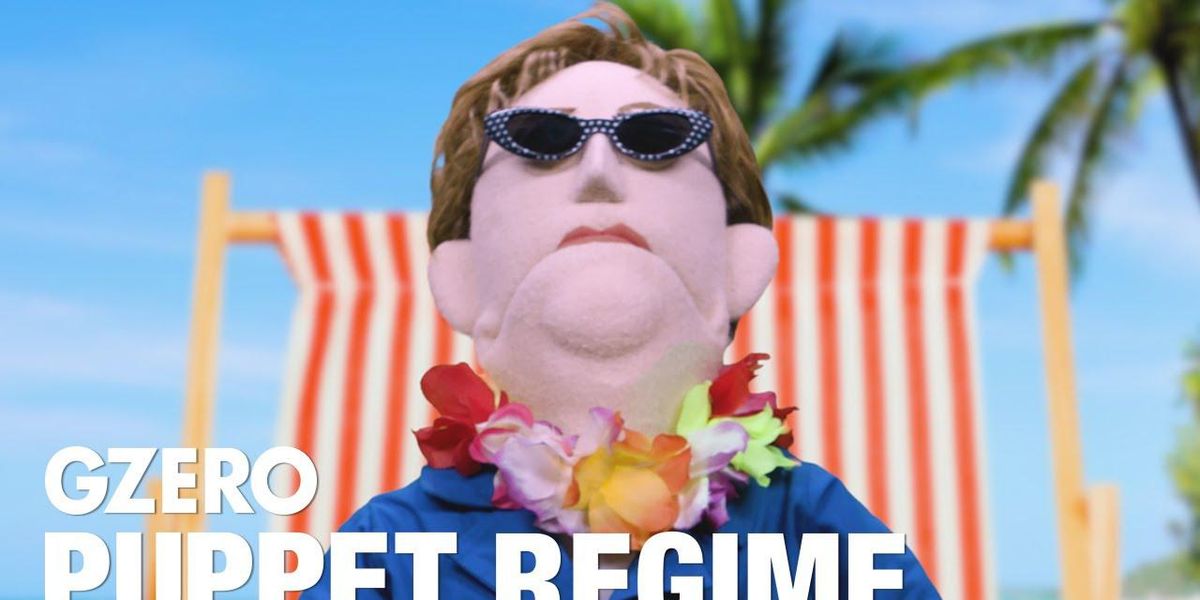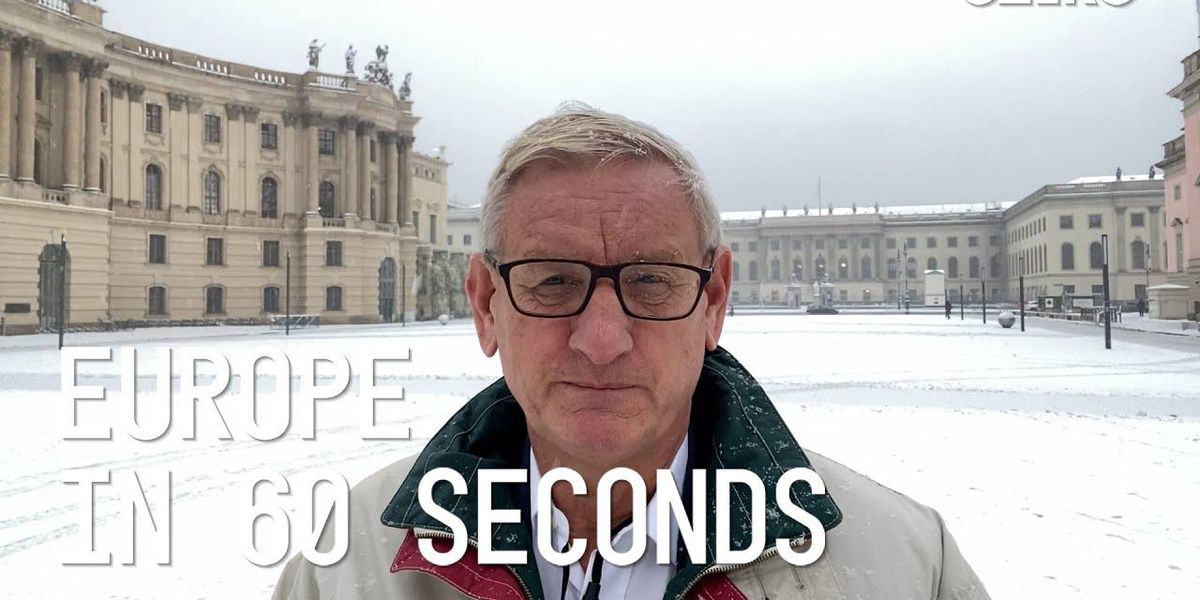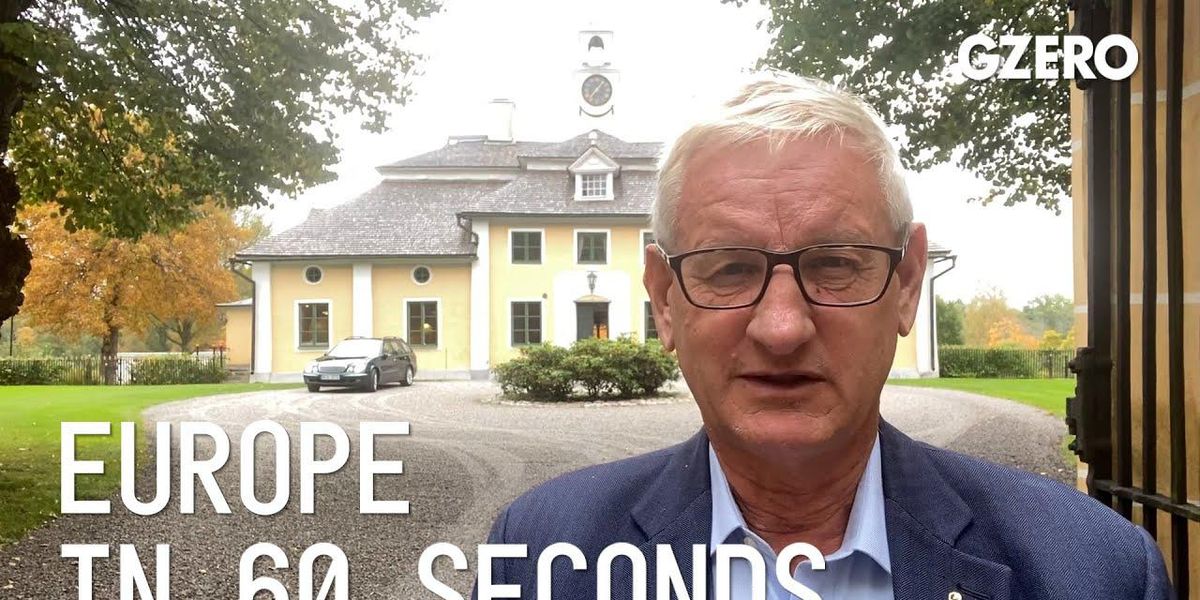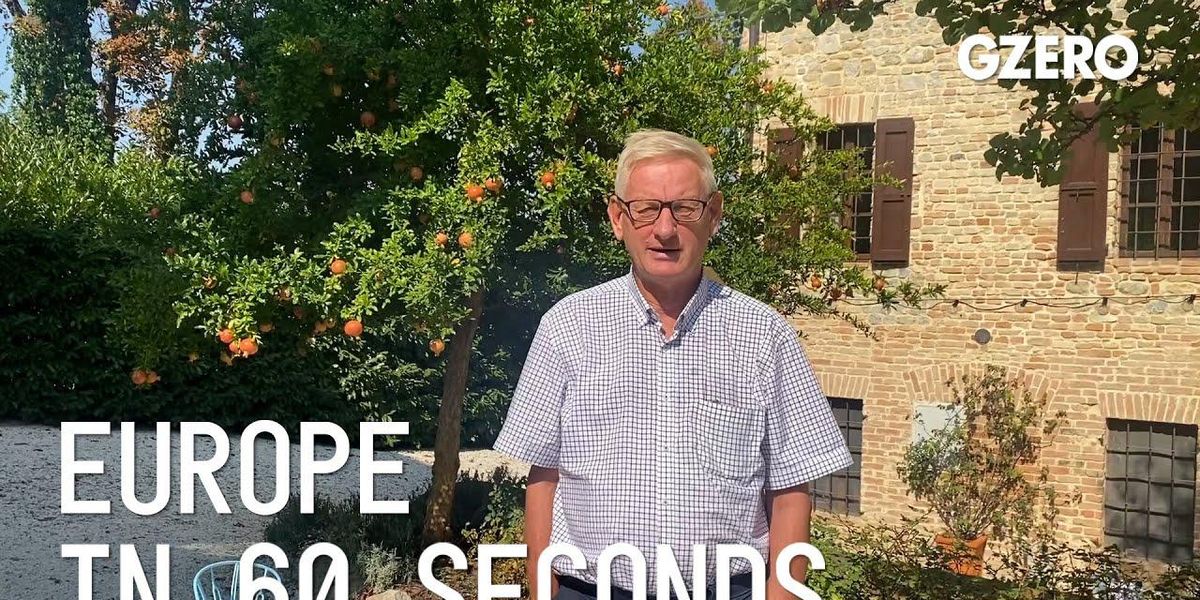Trending Now
We have updated our Privacy Policy and Terms of Use for Eurasia Group and its affiliates, including GZERO Media, to clarify the types of data we collect, how we collect it, how we use data and with whom we share data. By using our website you consent to our Terms and Conditions and Privacy Policy, including the transfer of your personal data to the United States from your country of residence, and our use of cookies described in our Cookie Policy.
{{ subpage.title }}
Angela Merkel off the grid
Chilling at the beach, retired German Chancellor Angela Merkel is so over politics. Or is she?
Watch more PUPPET REGIME!
Subscribe to GZERO Media's YouTube channel to get notifications when new videos are published.
Biden & Putin will continue Ukraine talks; Germany’s new chancellor
Carl Bildt, former Prime Minister and Foreign Minister of Sweden, shares his perspective from Europe:
What came out of the video conference between Presidents Biden and Putin?
Well, that's a very good question. We don't know, but they agreed to continue talking about the issues that Mr. Putin backed up by the threat of an invasion of Ukraine has put on the table. There is somewhat of a disquiet in Europe over that, but Biden has said that there's not going to be any talks about Ukraine without Ukraine at the table. This is a story that will continue for quite some time.
Is Germany's new chancellor Olaf Scholz going to fill the power vacuum in Europe?
I'm not quite sure there's a power vacuum, but clearly we have a new government in place here in Berlin and they are busy traveling now to Paris, to Brussels, to Warsaw to reconnect to allies and friends. Olaf Scholz will make his first appearance in a wider stage at the European Summit next week. I think there's going to be a lot of continuity in German politics and a lot of attention in Europe now shifts to the French presidential election in April of next year. First round, that might be a somewhat more dramatic affair.
- Biden and Putin to talk tough on Ukraine - GZERO Media ›
- Should NATO embrace Ukraine? - GZERO Media ›
- Is Putin going to invade Ukraine? - GZERO Media ›
- Russia's makes unrealistic proposals as Ukraine buildup continues - GZERO Media ›
- Russia makes unrealistic proposals as Ukraine buildup continues - GZERO Media ›
German Chancellor Olaf Scholz attends a news conference in the Federal Chancellery following the video conference with the country's 16 state leaders on the surge in the coronavirus disease (COVID-19) cases, in Berlin, Germany, December 9, 2021.
Enter Olaf — can he keep Germany’s traffic light blinking?
As of this week, for the first time since Gwen Stefani was topping the charts with Hollaback Girl, Germany is not run by a person named Angela.
Olaf Scholz — the pragmatic, robotic, determined leader of the center-left SPD party — now holds the reins of Europe’s largest economy.
But he also leads a three-party coalition, the first in Germany’s modern history, with the progressively, climate conscious Greens and the business-friendly fiscal hawks of the Free Democrats party. The coalition is known as the “traffic light” owing to the colors of its three members.
Here are a few immediate and longer-term challenges for Scholz.
His first big test is COVID. Germany is currently in the throes of its worst surge since the onset of the pandemic. Between the upcoming Christmas holiday and uncertainty about the omicron variant, Scholz has his work cut out for him. So far he has not announced any new society-wide lockdowns or restrictions. But with Germany’s vaccination rate of 70 percent now an EU laggard, he’s embraced a broad vaccine mandate and wants to get 30 million jabs done by the end of the year.
Foreign policy: Russia on day one. Scholz comes into office right as tensions around Ukraine are soaring again. He will quickly have to stake out a position towards Moscow that satisfies German industries, which rely on Russian markets and energy, but that also reflects the views of the Greens, Russia hawks who see the Kremlin as a menace both to the climate and to democracy. With the Greens’ leader Annalena Baerbock as foreign minister, this is going to be a tough balance to strike.
A crucial near-term decision for Scholz is whether he is willing to include suspension of the Nord Stream 2 Russian gas pipeline project as part of a package of German sanctions meant to deter Russian aggression against Ukraine… at a time of sky-high gas prices.
Going green without getting into the red. Scholz’s government has pledged a massive push on the climate front, promising to phase out coal entirely by 2030, eight years earlier than originally planned, and to double the renewable share of electricity generation to 80 percent by then as well.
These goals are practically existential for the Greens, but getting there will require massive investment — where’s the money going to come from? Scholz has already pledged to reimpose constitutional limits on debt, and the Free Democrats, who control his finance ministry, are opposed to raising taxes.
A bigger question: Can Scholz make social democrats cool again? The SDP victory was something of a stunner for a party that had seemed, just months ago, like it was on the brink of extinction. What’s more, across Europe traditional labor-oriented parties have suffered in recent years.
Now Scholz has a chance to prove that the traditional European center left has some fight in it, at a time when the right — in both its centrist and populist versions — has been defining the landscape for the last decade. Scholz believes the SPD can reconnect with working-class voters — and his coalition’s pledge to raise Germany’s minimum wage for about 10 million people is an immediate part of that.
About a third of EU member states are currently run by social democrats of one stripe or another. They will be watching to see if Scholz can use the bloc’s largest economy as a showcase for the center-left’s bonafides after a long time in the wilderness.
The unknown unknown: the next crisis. Will it be immigration? A terror attack? A financial meltdown? A political scandal? Scholz’s predecessor didn’t come into office as a crisis manager, but she sure left as one. How the new German chancellor holds together his somewhat oddball coalition under unforeseen pressures could prove decisive.What We're Watching: Angela out, omicron in
Exit Angela, enter omicron. Social Democrat Olaf Scholz will officially take over this week as German Chancellor, leading a coalition with the Greens and the business-friendly Free Democrats. His government has already laid out plans to accelerate Germany's transition to carbon neutrality, to bolster European sovereignty in the face of rising challenges from Russia and China, and to rein in fiscal spending – not only in Germany but across Europe – as the pandemic recedes. But one immediate challenge is that the pandemic isn't actually receding yet. Scholz will take office just as cases are surging. The current 7-day average of new cases in Germany is more than twice as high as the previous peak which was a year ago, before vaccines were rolled out. With the evidently more transmissible omicron variant already spreading, Scholz has said he favors making vaccines obligatory, even as blowback against mandates has been rising in Europe.
What We're Watching: Germany's next government taking shape
Who's going to run Germany? With coalition negotiations now reportedly in the home stretch, we could know what the next German government looks like as soon as Monday or Tuesday. Following elections that were held back in September, the center-left SPD, headed by Chancellor-in-waiting Olaf Scholz, has been hammering together a three-way coalition with the progressive Greens and the fiscal hawks of the Free Democrats Party. One big question mark is whether the spendthrift Greens or the tighter-pursestrings FDP will get the powerful finance ministry portfolio. Meanwhile, Green Party leader Annalena Baerbock is expected to become Germany's first female foreign minister, part of Scholz's larger pledge to ensure that the cabinet is split 50:50 between men and women.
German election outcome begins new era of three-party cooperation
Carl Bildt, former Prime Minister and Foreign Minister of Sweden, shares his perspective from Europe:
What about the outcome of the German election?
Well, as expected, the Social Democrats under Olaf Scholz came out on top. They had a very credible campaign, presenting him primarily not as a Social Democrat, but as a possible successor to Angela Merkel. Then, It's going to take quite some time to form a new government and the exact outcome of that, not entirely certain.
Is this the beginning of a new era in the politics of Germany?
It certainly is. First, of course, Angela Merkel will step down whenever a new government comes into being. After 16 years, is a long period. She's been around more or less forever in the politics of Europe. And then also because of the fact that it will be necessary to have a government of three parties. That hasn't happened for very long time in Germany. And the key will be to bridge the difference between the Greens with their agenda, and the Liberals with a more liberal economic agenda. And how the two of them will come together will be key. Then I think the Social Democrats or possible the Christian Democrats will have to adjust to the agenda decided effectively by the Greens and the Liberals.
The Graphic Truth: Germany's fading establishment parties
Germany's conservative CDU/ CSU party and the center-left SPD have dominated German politics since the 1950s. For decades, they have vied for dominance and often served in a coalition together, and have been known as the "people's parties" – a reference to their perceived middle-of-the-road pragmatism and combined broad appeal to the majority of Germans. But that's all changing, as evidenced by the fact that both performed poorly in this week's election, shedding votes to the minority Greens and pro-business Free Democrats. We take a look at the CDU/CSU and SPD's respective electoral performance over the past 60 years.
After Merkel, who leads Europe?
Carl Bildt, former Prime Minister and Foreign Minister of Sweden, shares his perspective from Europe:
Who's going to be the leading voice politician in Europe after Angela Merkel leaves?
Well, that remains to be seen. First, we need to wait for the outcome of the German election, and then it's going to take quite some time to form a government in Germany to see who's going to be chancellor. And then of course we have elections coming up in France in the spring. Macron is likely to win, but you never know. So by next summer, we'll know more about that. And then there are other personalities there. There's Mario Draghi, prime minister of Italy, who has a strong personality. Mark Rutte of the Netherlands, as long as he's there. So it's going to take quite some time for this to be sorted out.
What did Boris Johnson achieve during his visit to the United States?
Well, I think his number one priority at the moment must be to mobilize broader international support for climate efforts. He is the host of the COP26 Climate Summit in Glasgow in November. That must be a success and I hope that he makes further progress in that direction during his days in the United States.



